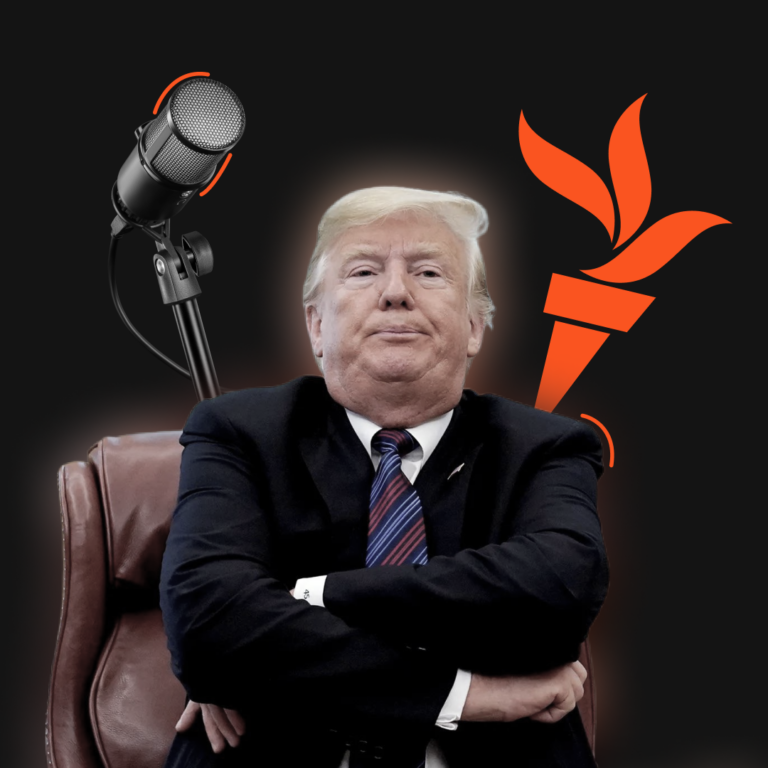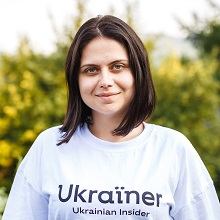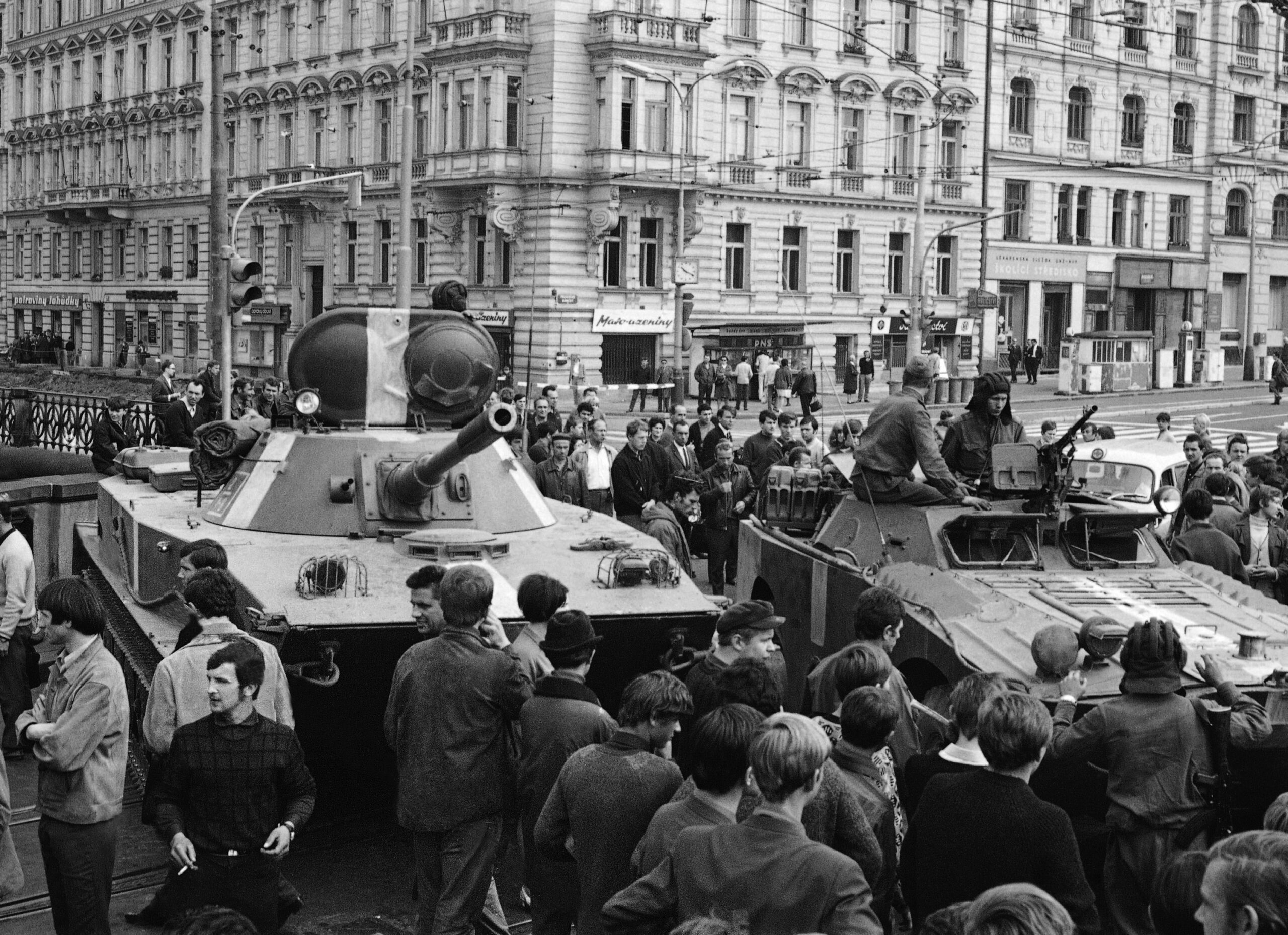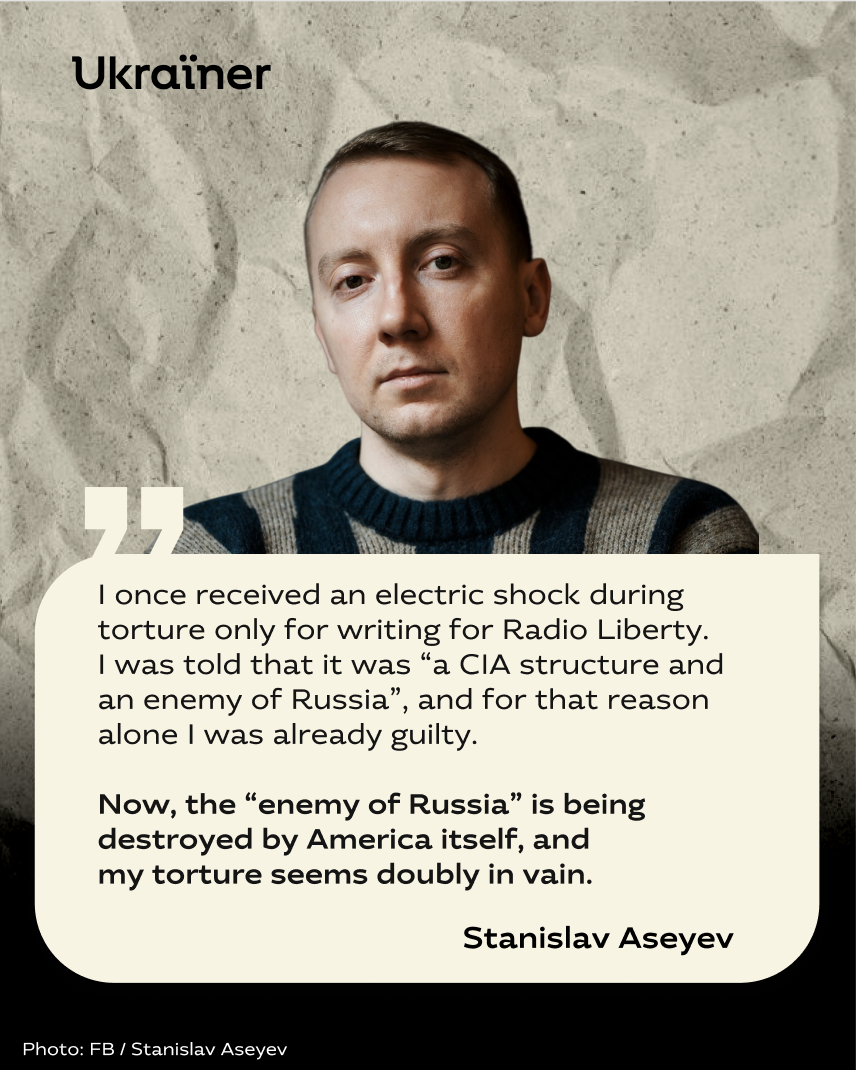
Trump’s funding cuts put the future of Radio Liberty/Radio Free Europe and Voice of America — and, by extension, the future of free press — at risk. Launched 70 years ago to break through totalitarian censorship, Radio Liberty/Radio Free Europe remains the only source of truthful information in some of the 23 countries where it operates.
Written by

Editor-in-Chief at Ukraїner in English
In this story, we explore how dictatorships have tried to silence RL/RFE over the decades.
The role of Radio Free Europe/Radio Liberty in the communist countries
The working conditions of Radio Free Europe/Radio Liberty (hereinafter RFE/RL) have never been easy, yet they still managed to make a significant contribution to spreading the truth. Ukrainian writer Oksana Zabuzhko, reacting to the news about the cessation of funding for this broadcaster, recalls:
“It was those ‘enemy voices’ after Chornobyl that taught us, Kyiv residents, basic anti-radiation measures, and you could tell, walking down the street, who was ‘anti-Soviet’ and who was a ‘Soviet person’: those who “listened” had their windows tightly shut! So now, after 39 years, it’s time for all of us who survived to say to those ‘voices’, without fear of excessive pathos: thank you for the protection.”
During the Cold War, communist governments tried to prevent RFE/RL from broadcasting information to listeners in various countries. They systematically jammed radio signals by building towers to broadcast noise on the same frequencies. And they didn’t stop at that; such interference continued in countries where democracy was under threat.
Communist regimes resorted to extreme measures to silence the media — and those behind it. In 1978, Bulgarian defector Georgi Markov, a vocal critic of communism on Radio Free Europe, was fatally poisoned in London. While waiting for a bus, he felt a sting in his leg and noticed a man with an umbrella nearby. Four days later, Markov died from ricin poisoning, found in a tiny pellet embedded in his leg.

During the Soviet invasion of Czechoslovakia in 1968, Radio Liberty was the main source of reliable information. Source: Radio Liberty.
In the 1950s, the media launched balloons into Czechoslovakia with leaflets reading “A new wind is blowing” and “A new hope is awakening”, which also included the frequencies of their broadcasts. After Stalin’s death in 1953, they carried out a four-day operation called “Prospero”. In response, the Czechoslovak regime ordered the balloons to be shot down with cannons and fighter jets.
Radio Liberty in the Middle East
In 1999, Iraqi President Saddam Hussein ordered his intelligence service to disrupt Radio Liberty’s Iraqi service, operated by Iraqi dissidents from the Prague headquarters. The plan involved using an RPG-7 anti-tank weapon to target the RFE/RL office from a nearby building. However, a tip-off from an Iraqi embassy worker allowed Czech security services to thwart the attempt. The RPG, intended for the attack, was handed over to the Czech government after Hussein was toppled.
In 2024, Iran sentenced Iranian-American journalist Reza Valizadeh, who had previously worked with the RFE/RL Persian service. His arrest highlighted Iran’s practice of imprisoning foreigners linked to Western media, while other RFE/RL journalists and their families experience threats and asset freezes in Iran.
Persecution of Radio Liberty journalists in occupied Crimea
In 2016, Russian-installed authorities in Crimea opened a criminal case against Radio Liberty journalist Mykola Semena, who was later given a suspended sentence.

In 2017, RL/RFL freelancer journalist Stanislav Aseyev was arrested in Russian-occupied Donetsk for his reporting on trump-up espionage charges. He revealed his 31-month-long captivity in the book The Torture Camp on Paradise Street, available in eight languages.

